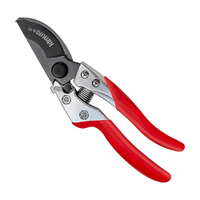How to take cuttings from roses: propagation tips for growing new plants for free
Gardening experts share their advice on how to take cuttings from roses, depending on the season
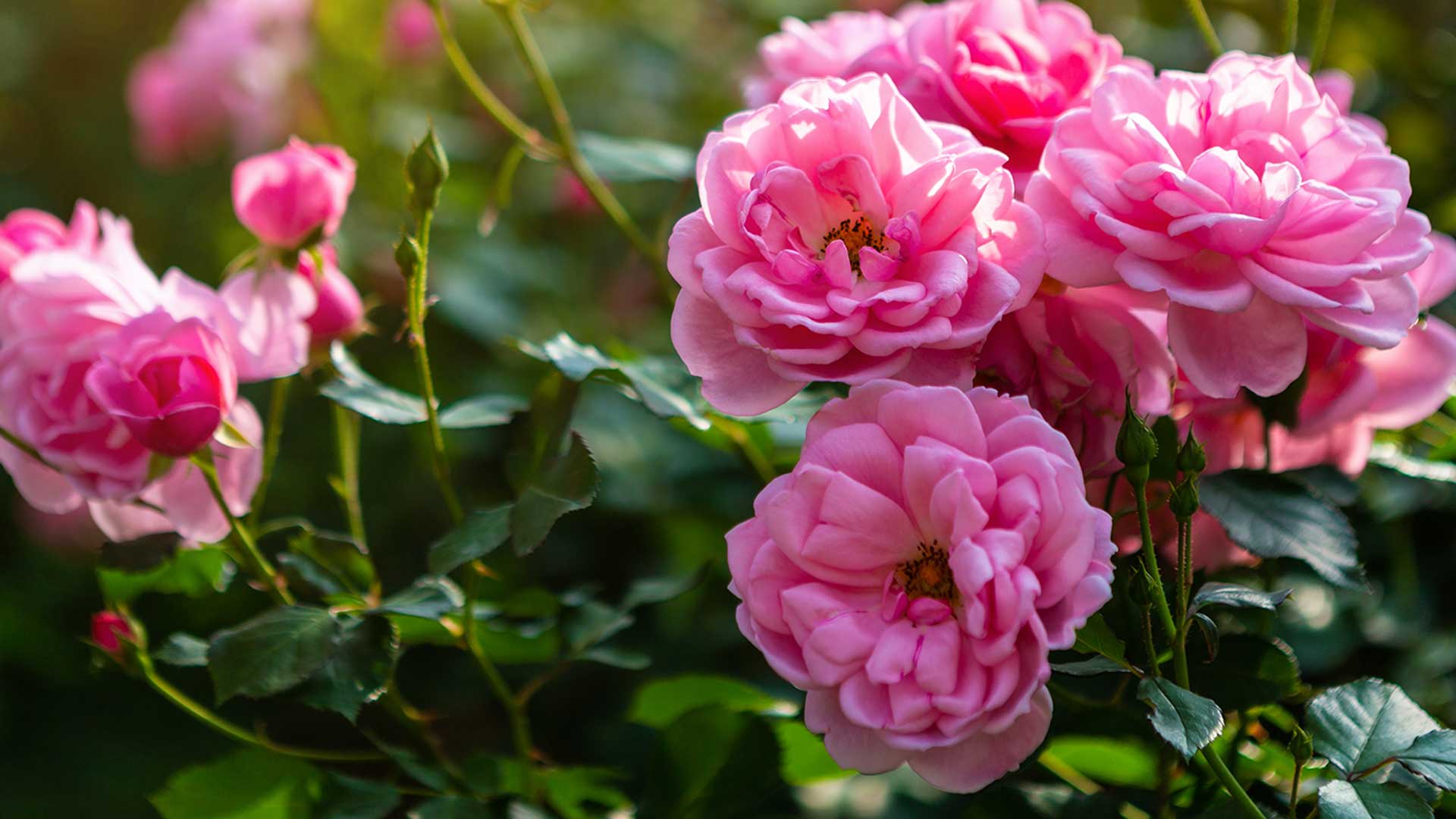

Learning how to take cuttings from roses is a low-cost way to get more of your favourite flowers. You can try it at various times of the year, but the method differs slightly depending on the season.
Roses are almost always a good choice for an outdoor space. From informal ramblers scrambling across walls to upright shrubs with perfectly formed blooms, they suit all types of garden trends. Plus, they make an exquisite display in a vase – especially if they're the fragrant type.
Plant propagation is easier than you might expect, so if you already have a rose bush, why not give it a go? The following expert tips will increase your chances of success.
An expert guide on how to take cuttings from roses
You can take softwood, semi-ripe, or hardwood rose cuttings from the current year's growth, but it's not as confusing as it sounds. Whether you want some extra flower power in your cottage garden or a new potted plant for your porch, these pro tips on how to take plant cuttings will help.
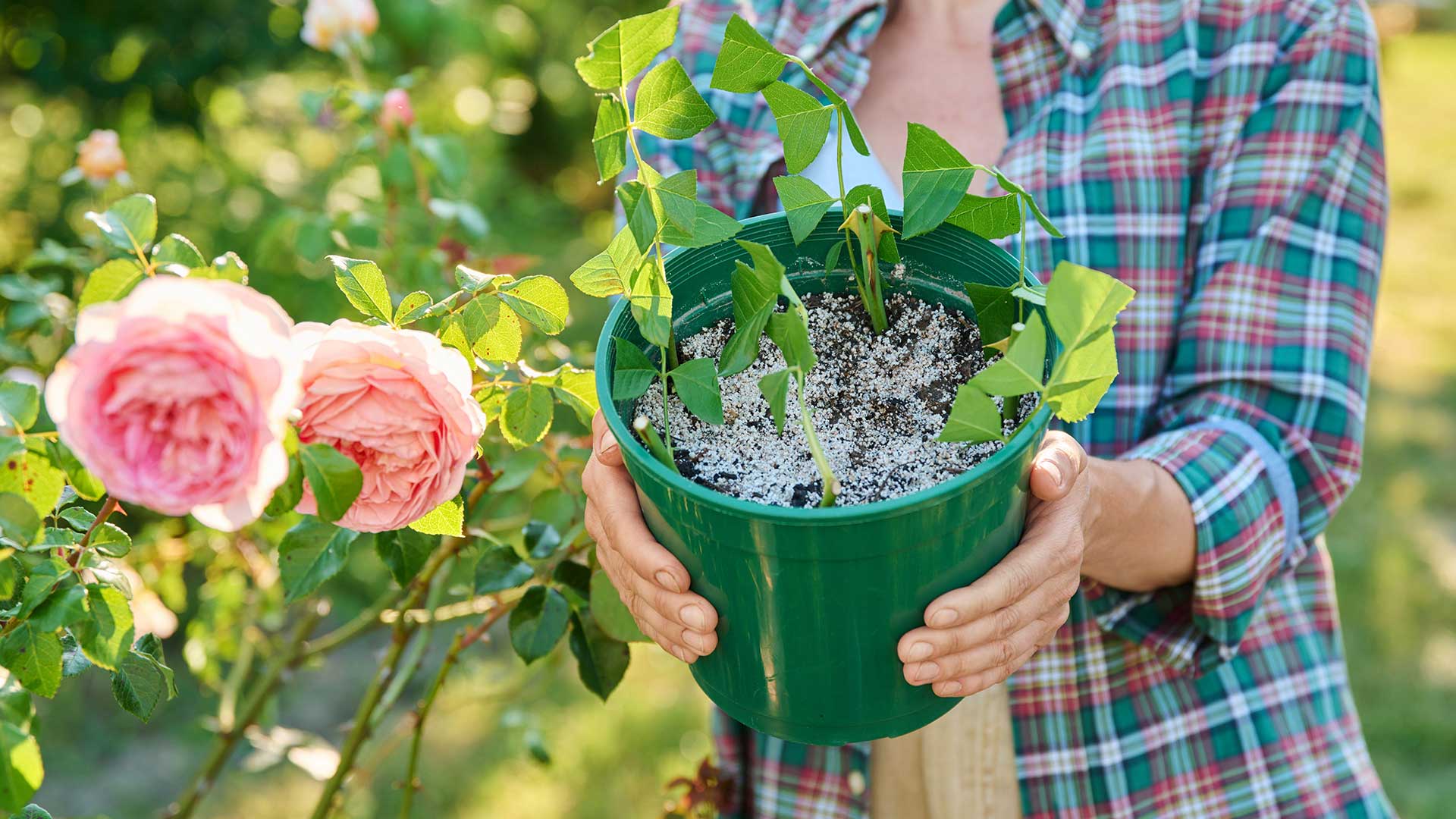
Sections of stem can be planted into compost to grow new plants
How to take softwood cuttings from roses
Tender, softwood cuttings can be taken from roses in the spring, once they've started putting on new growth.
Rosebie Morton, a flower farmer and the founder of The Real Flower Company, says to cut a length of stem that's approximately 15cm. Then, cut this into sections, with at least two leaf nodes on each. Remove any extra leaves, leaving two on each section.
You can then plant the cuttings around the edge of a pot filled with a combination of multipurpose compost and vermiculite (available from Amazon) or grit. "Place a plastic bag over the cuttings to keep the moisture in. The cuttings should take in about four to six weeks."
Sign up for the woman&home newsletter
Sign up to our free daily email for the latest royal and entertainment news, interesting opinion, expert advice on styling and beauty trends, and no-nonsense guides to the health and wellness questions you want answered.
Once the cuttings have rooted, you can remove the plastic bag and transplant them into individual pots to grow on. If you've started them under cover, harden them off before moving them outdoors – a key gardening tip to prevent stressing your plants.
Top tip: All types of rose cuttings can be dipped in rooting powder, available at Amazon, before being planted, which can help them along.

Rosebie launched The Real Flower Company over 28 years ago from her family farm at Hinton Ampner, Hampshire. Unable to find traditional scented English flowers, Rosebie set about growing her own, and this passion-fuelled The Real Flower Company as we know it today. Recognised as an early trailblazer in the sustainable flower farming industry, Rosebie remains dedicated to her original ambition of cultivating scented English roses and flowers through sustainable farming practices.
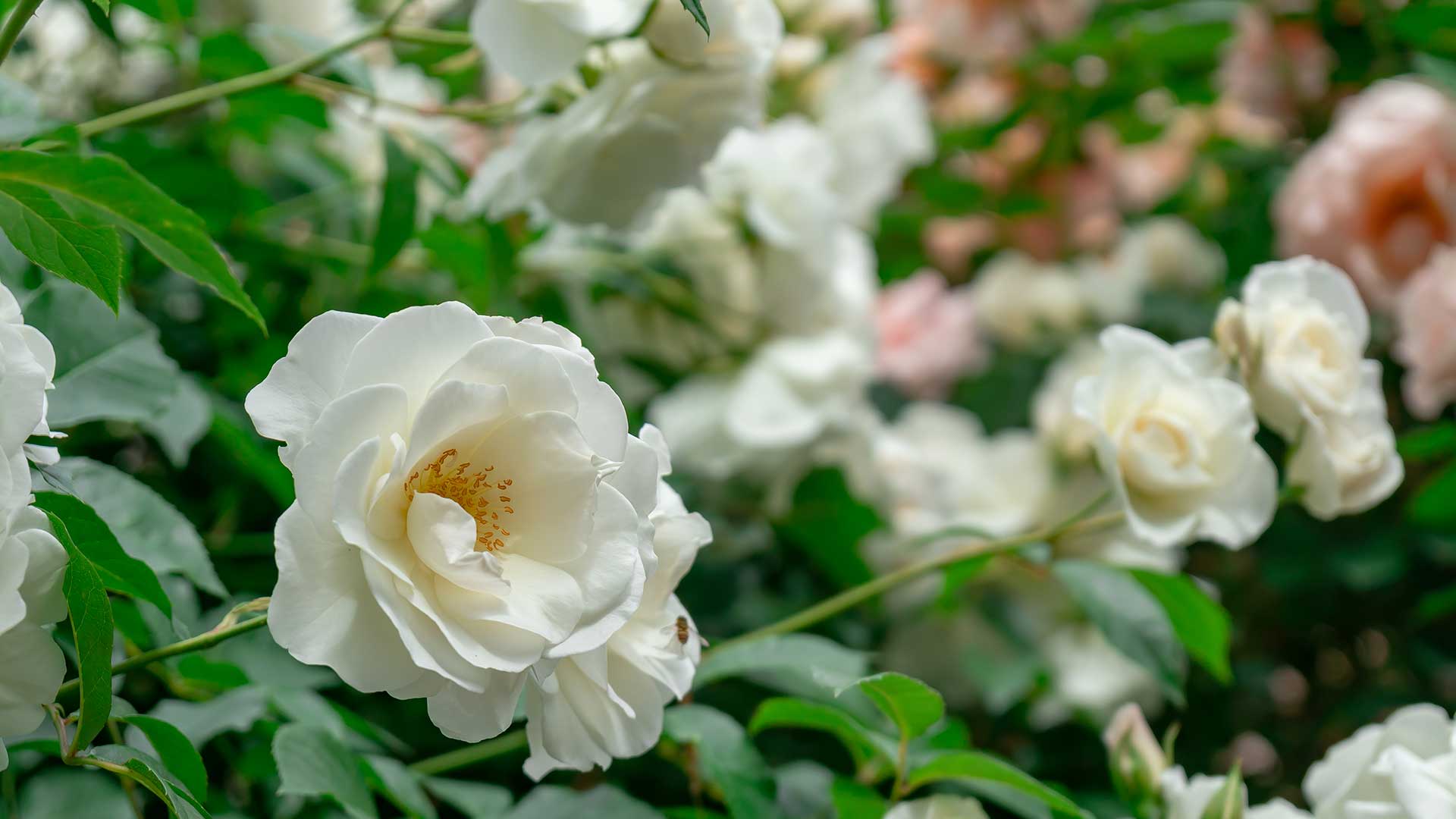
Tender stem cuttings can be taken early in the growing season
How to take semi-ripe cuttings from roses
Taking semi-ripe cuttings from your roses is a mid-to-late summer gardening job when the stems are a little firmer.
Rosebie says to cut a stem that's approximately 15cm. Then, remove all the lower leaves, keeping two at the top. Cut the base of the cutting just below a leaf node. "If the leaves are very large, cut them in half to avoid too much transpiration," she adds.
You can then plant each cutting in the same sort of growing medium as with softwood cuttings, around the edge of a pot, to about half its depth.
Avoid letting the cuttings dry out, watering the pots when needed. They should take a minimum of two months to root. As with softwood cuttings, move them into individual pots once roots have been established.
Kimura 8" Pro Bypass Garden Secateurs: RRP: £32.99 Now £20.99 at Amazon
These durable and ergonomic secateurs are ideal for taking cuttings and pruning plants. Plus, the red handle makes them easy to spot if you put them down in your flowerbed.
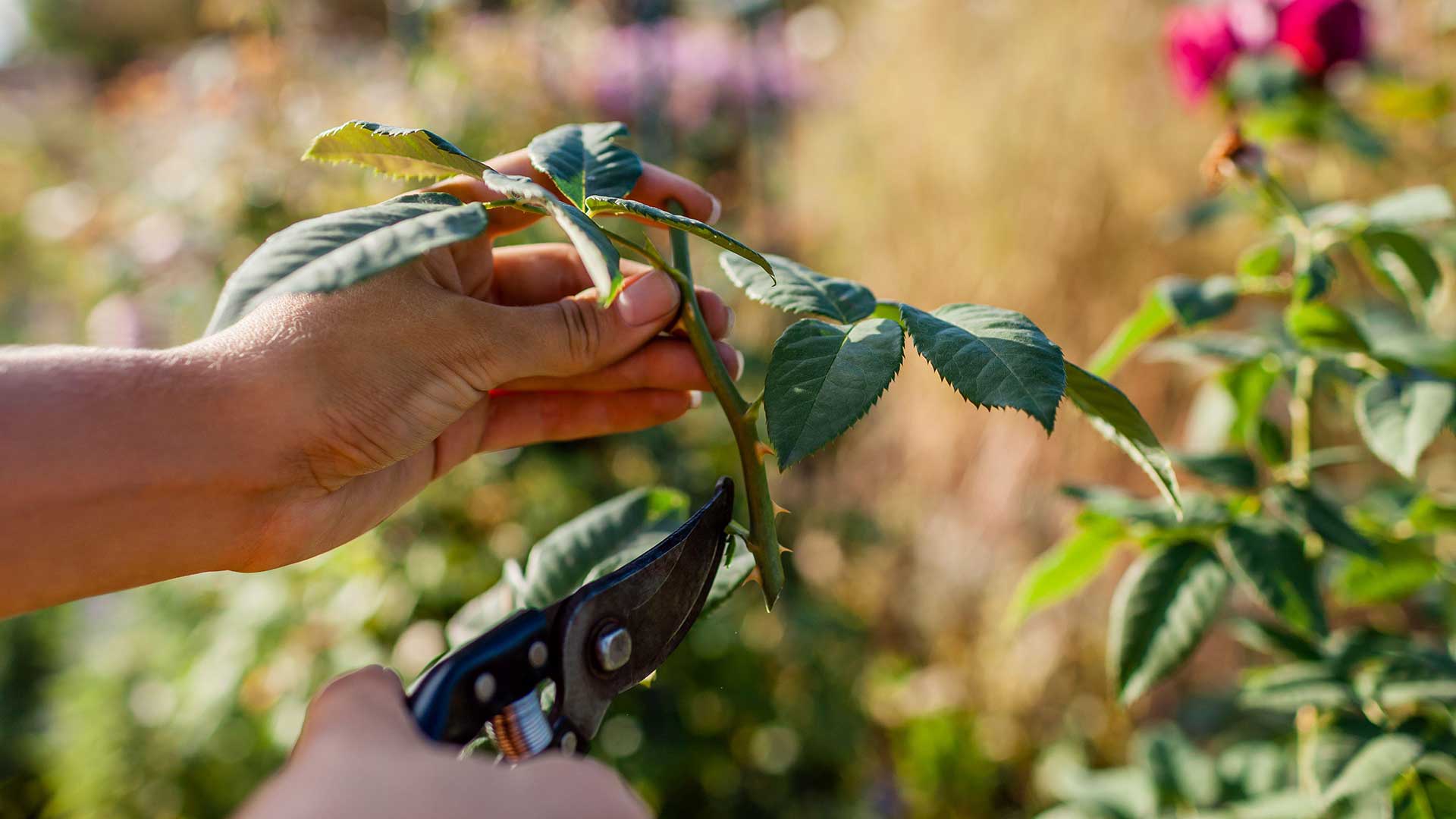
Use sharp secateurs to take cuttings
How to take hardwood cuttings from roses
Propagating these alluring plants is still possible in the autumn, and even in the winter. But, at this time of year, you'll need to take hardwood cuttings.
Gardening expert Sarah Raven says, "Take a 30cm length of stem, removing all leaves and stripping the thorns. Sink two-thirds of the stem into a sand-filled trench in the ground and fill it with firm soil." Alternatively, you can plant these cuttings in containers filled with gritty compost.
This method takes a bit more patience than the other two, as Sarah says to leave each cutting until the following October. "By then, it will have developed roots."
It's easy to forget about hardwood cuttings, Rosebie adds – "but they will need checking for sufficient water and that they haven’t been disturbed."

Since the publication of her first book, The Cutting Garden, Sarah has led the way in introducing a new kind of productive gardening. Her aim is to create intense colour and beauty, combined with a practical and easy-to-achieve approach. Her popular gardening podcast Grow, Cook, Eat, Arrange has achieved 4.1 million downloads. She’s published 15 books and runs Sarahraven.com, which services over 600,000 customers.
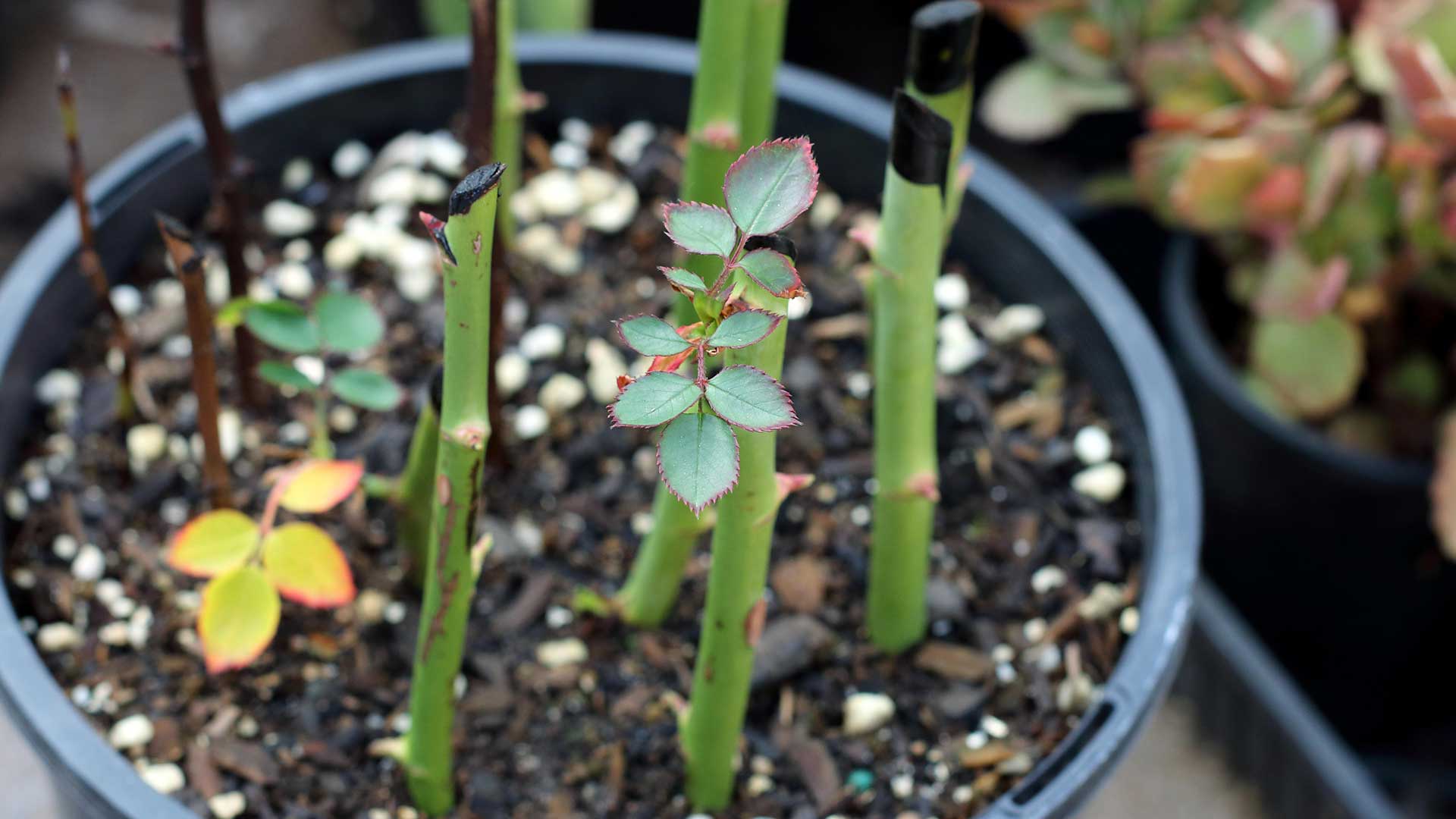
Hardwood cuttings take longer to root
FAQs
What are some common mistakes to avoid when taking cuttings from roses?
Gareth Mitchell, founder of Tree2MyDoor which supplies a range of gift roses, says, "One often overlooked step is to make sure your gardening tools are clean to help reduce the risk of disease." Remember to use clean tools when pruning roses, too.
As well as this, Gareth says to ensure you take cuttings from a strong and healthy plant.
Using a clean pot is also important, especially if you're planting softwood cuttings. As Rosebie points out, these types can be prone to fungal diseases.

With a background in the environmental and charity sectors, Gareth grew up in Northern Ireland where he learnt about the many different species of local plant life, developing a strong desire for the conservation of the natural environment at an early age. He founded Tree2MyDoor in 2003 in a bid to supply greener products to consumers, and the business is now one of the UK’s leading sustainable gift brands.
What are some good varieties of roses to take cuttings from?
According to Rosebie, species roses are much easier to propagate from cuttings than hybrid and floribunda modern roses. "Rambler roses are particularly easy," she adds.
It's important to note that some roses, often the modern varieties, are protected by Plant Breeders’ Rights and should not be propagated. In fact, doing so can be illegal, so it's always worth double-checking before you start.
How many cuttings should you take from roses?
Unfortunately, knowing how to take cuttings from roses doesn't guarantee success every time – much like taking cuttings from hydrangeas. With this in mind, Gareth suggests taking multiple cuttings from the same variety to increase your chances.
Looking for more ways to get the most from these romantic plants? We have plenty of advice on keeping your roses flowering for longer in our dedicated guide.

The garden was always a big part of Holly's life growing up, as was the surrounding New Forest where she lived. Her appreciation for the great outdoors has only grown since then; she's been an allotment keeper, a professional gardener, and a botanical illustrator. Over three years ago, Holly started writing about plants and outdoor living full-time, first for Gardeningetc.com and now for popular lifestyle titles such as Homes & Gardens.
-
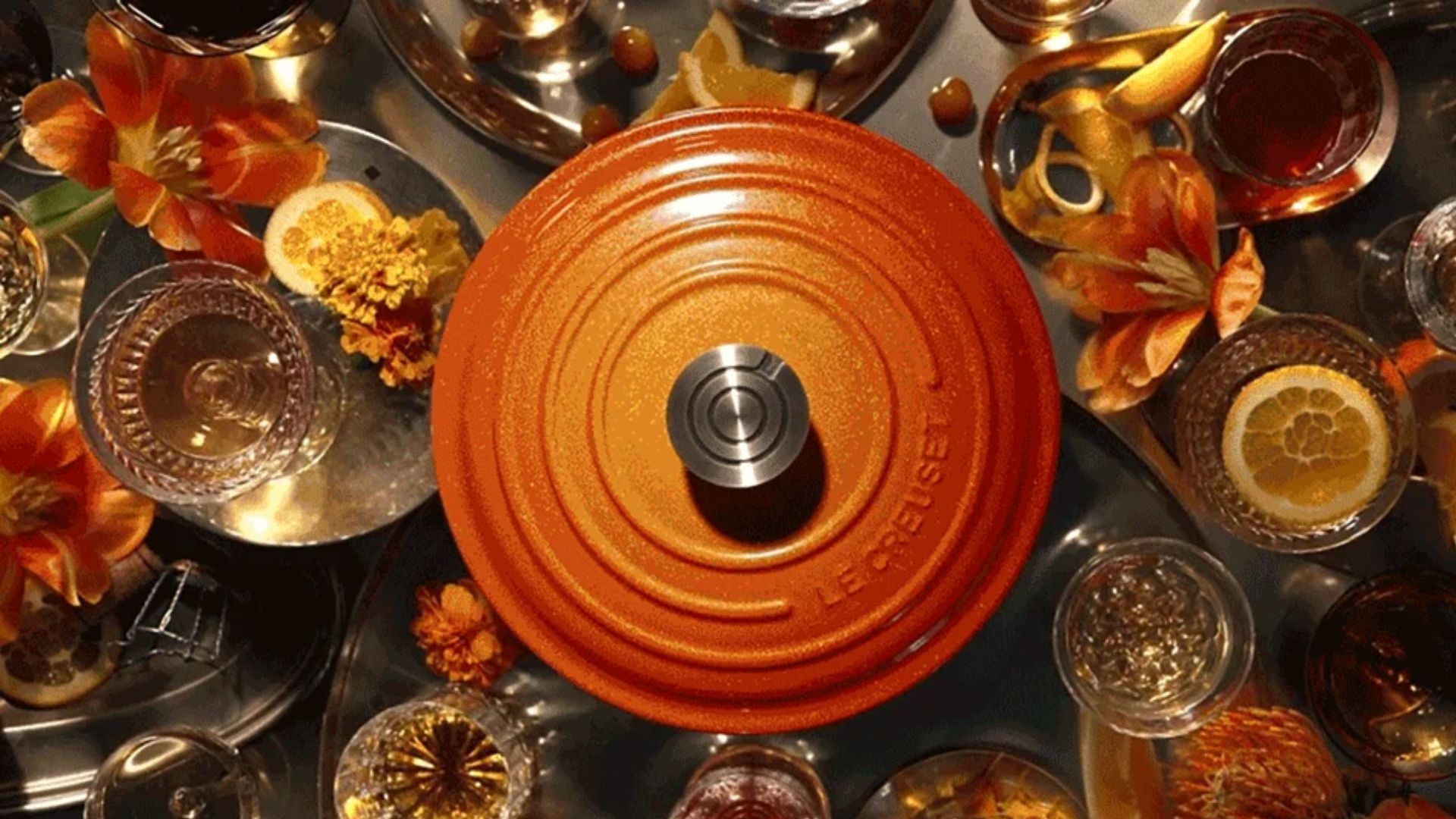 Le Creuset has taken the gold standard literally — their 100 year launch features real gold and an iconic designer collaboration
Le Creuset has taken the gold standard literally — their 100 year launch features real gold and an iconic designer collaborationLe Creuset have turned 100 years old and to celebrate they have launched a new colour — Flamme Dorée — as well as a coffee table book with designers Assouline
By Laura Honey Published
-
 This chic, Brazillian perfume brand is our beauty team's secret to smelling expensive and unique
This chic, Brazillian perfume brand is our beauty team's secret to smelling expensive and uniqueFrom salty accords to modern twists on tuberose, there's a Granado perfume for every preference - but these 9 blends have our heart...
By Naomi Jamieson Published
